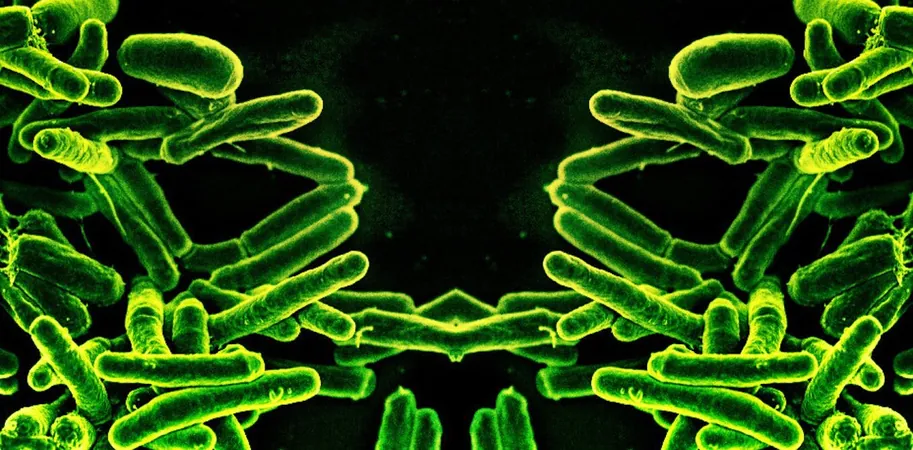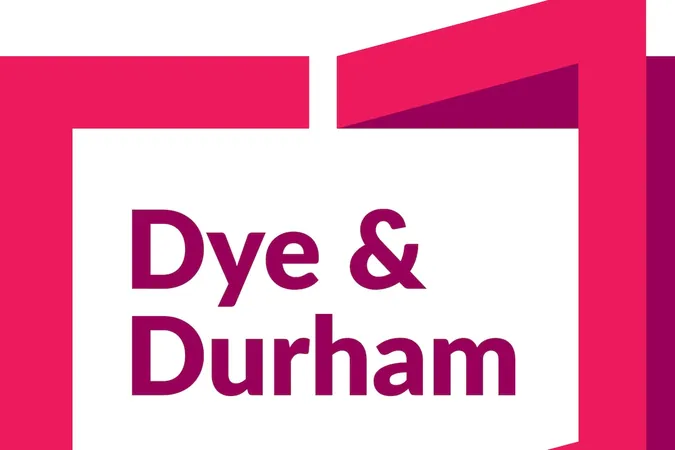
Scientists Sound the Alarm: Dangerous 'Mirror Life Forms' Could Threaten Humanity and Nature
2024-12-17
Author: Charlotte
The Fascination with Mirror Images
The concept of mirror images is fascinating, particularly when considering the intricate world of molecules. Just as your reflection in the mirror is an identical yet reversed version of you, certain molecules exist as mirror images of themselves, known as "enantiomers." This unique phenomenon, referred to as chirality or "handedness," plays a pivotal role in biology because these mirror images can dramatically affect biological functions and responses.
The Warning from Scientists
Recently, a team of 40 esteemed scientists published a high-stakes warning in the journal *Science*. They predict that within the next decade, we could potentially engineer entire organisms—specifically bacteria—created from mirror-image molecules. This advancement, while intriguing, carries significant risks.
Potential Dangers of Mirror Bacteria
The danger lies in what these "mirror bacteria" could mean for human health and the environment. With the ability to elude our immune systems, these organisms could trigger severe infections, potentially devastating entire populations of plants and animals and drastically disrupting ecosystems.
The Role of Chirality
Chirality influences how molecules interact and function in living systems. For example, our body's enzymes are fine-tuned to recognize left-handed amino acids and right-handed sugars. This specificity is essential; if we introduced mirror-image biological molecules, our immune defenses could become ineffective against them, leading to catastrophic outcomes.
A Cautionary Example
Consider the implications of medication: the drug thalidomide serves as a cautionary example; one variant treats morning sickness effectively, while its mirror form can result in severe birth defects. This duality illustrates how the development of mirror molecules must be approached with extreme caution.
The Scientific Pursuit
Research into mirror life forms is largely driven by scientific curiosity and the pursuit of innovative medical treatments. Engineering such molecules could lead to more effective drugs, as mirror peptides would be less susceptible to the body's natural degradation processes. So far, scientists have managed to create functional mirror versions of DNA and proteins, laying the groundwork for these fascinating yet troubling explorations.
Ethical and Safety Considerations
However, the prospect of crafting complete mirror organisms prompts urgent ethical and safety considerations. The potential for mirror bacteria to escape laboratory settings, as has happened before, is a dire concern. The consequences could be unpredictable and widespread, altering the balance of ecosystems and causing native species to be displaced by these foreign organisms.
Call for Governance and Collaboration
The scientists involved in this research have called for immediate action to establish robust governance and international collaboration. Acting now will allow society to responsibly manage the risks associated with these discoveries while maintaining the integrity of our ecosystems.
Conclusion
While the prospect of creating mirror life forms seems like an idea pulled straight from a science fiction thriller, it is grounded in scientific plausibility and should not be overlooked. We must prepare for the advancements on the horizon to ensure that the wonders of science do not come at the expense of human and environmental safety.
The window is still open, but we must be diligent and proactive. The future of mirror biomolecules hangs in the balance, and only through thoughtful consideration and stringent oversight can we navigate these uncharted waters safely.









 Brasil (PT)
Brasil (PT)
 Canada (EN)
Canada (EN)
 Chile (ES)
Chile (ES)
 España (ES)
España (ES)
 France (FR)
France (FR)
 Hong Kong (EN)
Hong Kong (EN)
 Italia (IT)
Italia (IT)
 日本 (JA)
日本 (JA)
 Magyarország (HU)
Magyarország (HU)
 Norge (NO)
Norge (NO)
 Polska (PL)
Polska (PL)
 Schweiz (DE)
Schweiz (DE)
 Singapore (EN)
Singapore (EN)
 Sverige (SV)
Sverige (SV)
 Suomi (FI)
Suomi (FI)
 Türkiye (TR)
Türkiye (TR)